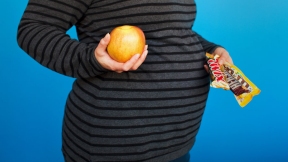
Most women have poor diets around the time of conception that may increase the risk of pregnancy complications like excessive weight gain, high blood pressure, impaired fetal growth and preterm deliveries, a U.S. study suggests. During the three months around conception, the study found that women got roughly one-third of their energy from so-called empty calories like alcohol and foods loaded with sugars and fats. Their top sources of energy were soda, pasta, cookies, cake, bread, beer, wine and spirits. “In particular, the fact that soda was the primary source of calories was concerning,” said lead study author Lisa Bodnar, a public health researcher at the University of Pittsburgh.

“Soda provides essentially no nutrition,” Bodnar said by email. “But it is something that can be replaced with water or other non-caloric beverages to eliminate those extra calories that may be contributing to obesity.” For the study, researchers examined data from dietary questionnaires completed by 7,511 women when they were 6 to 14 weeks pregnant. Participants were asked to recall what they ate during the three months around conception, then researchers scored women’s diets with up to 100 points for following every aspect of healthy diet guidelines. Overall, the average score was just 63 points, researchers report in the Journal of the Academy of Nutrition and Dietetics. However, more white women got close to achieving an ideal diet than the Hispanic or black women in the study. About one quarter of white women scored in the top-fifth, with scores typically around 79, while only 14 percent of Hispanic women and 4.6 percent of black women were in this healthiest-diet category. Among all the women, higher education levels tended to go along with higher-quality diets. Women planning a pregnancy should ensure they are consuming a healthy diet at least three months before they conceive and try to maintain this diet throughout pregnancy. This includes avoiding soda and sugary drinks as well as eating a diet rich in fruits, vegetables, whole grains, lean protein and low-fat dairy, Bodnar said.











